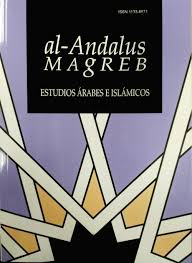Women and heritage in the Muslim and Berber North African context.

Downloads
- PDF (Español (España)) 2025
- EPUB (Español (España)) 84
- VISOR (Español (España))
- MOVIL (Español (España))
- XML (Español (España)) 77
Info
Abstract
Regulation of Muslim inheritance directly emanates from Koran which grants women a place in succession. However, in North Africa, these rules have had to coexist with various Berber customs which, almost unanimously, have tried to prevent or to hamper women’s access to land property with the aim of preserving the estate in the male line. Although current national legal systems, based on Islamic laws, recognise the right of women to inherit, gender equality in succession matters is far from being achieved.
Keywords
Downloads
How to Cite
License

This work is licensed under a Creative Commons Attribution-NonCommercial-NoDerivatives 4.0 International License.
Those authors who have publications with this journal, accept the following terms:
a. Authors may retain their copyright and guarantee the journal the right of first publication of their work, which will be simultaneously subject to Licencia de reconocimiento de Creative Commons that allows third parties to share the work as long as its author is indicated. and its first publication this journal.
b. Authors may adopt other non-exclusive license agreements for the distribution of the version of the published work (eg: deposit it in an institutional electronic file) provided that the initial publication in this journal is indicated.
c. Authors are allowed and recommended to disseminate their work through the Internet (eg: in institutional telematic files or on their website) once the manuscript is accepted, which can lead to interesting exchanges and increase citations of the published work. (See El efecto del acceso abierto).
References
AIT MOUS, Fadma y BERRIANE, Yasmine (2015): “Terres collectives et inégalités: le combat des soulaliyates”, Les dossiers Economia, p. 28-31. http://economia.ma/content/terres-collectives-et- in%C3%A9galit%C3%A9s-le-combat-des-soulaliyates
ASPINION, Robert (reed. 2008): Contribución al estudio del derecho consuetudinario bereber marroquí, traducción, Mohammed Salhi, Abderrahman Laaouina. Rabat, IRCAM.
BLANCO IZAGA, Emilio (reed.1995): Emilio Blanco Izaga: Coronel en el Rif. Una selección de su obra, publicada e inédita, sobre la estructura sociopolítica de los rifeños en el norte de Marruecos. Estudios introductorios y notas de David Montgomery Hart, Melilla, Ayuntamiento de Melilla, Fundación Municipal y Sociocultural y UNED-Centro Asociado Melilla.
BLEUCHOT, Hervé (2000): “Introduction. Les sources formelles du droit musulman”, Droit musulman: Tome 1: Histoire. Tome 2: Fondements, culte, droit public et mixte, Aix-en-Provence, Presses universitaires d’Aix- Marseille, p. 479-484 [http://books.openedition.org/puam/1039 p. eléct. 1- 9].
BLEUCHOT, Hervé (1999): “Habous”, Encyclopédie Berbère, 21 | Gland – Hadjarien, Aix-en-Provence, Edisud, p. 1-9 [http://encyclopedieberbere.revues.org/1840]. CORTÉS, Julio (2005): El sagrado Corán, (Versión castellana), San Salvador,
Mustafa Al-Salvadori, Centro Cultural Islámico Fátimah Az-Zahra. GABSI, Abdallah (2002): “Civilisation musulmane et Droit musulman”, Revue
Saout el Jalia, n. 44/45, París, p. 33-37.
GAUDRY, Mathéa (1929): Le femme Chaouia de l’Aurès. Étude de sociologie
berbère, París, Librairie Orientaliste Paul Geuthner.
GÉLARD, Marie-Luce (2003): Le pilier de la tente. Rituels et représentations
de l’honneur chez les Aït Khebbach (Tafilalt), París, Éditions de la Maison
des Sciences de L’Homme, Éditions Ibis Press. HACOUN-CAMPREDON, Pierre (1921): Étude sur l’évolution des coutumes
kabyles spécialement en ce qui concerne l’exhérédation des femmes et la pratique du hobous, Alger, Ancienne Maison Bastide-Jourdan, Jules Carbonel.
HANOTEAU, Adolphe y LETOURNEUX, Aristide (2003 [1873]) : La Kabylie et les coutumes kabyles, París, Éditions Bouchène, Tomos I-III.
HUFFAKER, Shauna (2012): “Gendered limitations on women property owners: three women of early modern Cairo”, Hawwa. Journal of Women of the Middle East and the Islamic Word, 10, Leiden, Brill, p.127-50.
LAOUST, Émile (1915) : “Les Izayan d’Oulmès”, Les Archives berberes, 1915-16 vol.1, fascículo 4, cap.IV, Rabat, Publication du Comité d’Études Berbères, 265-278 http://bnm.bnrm.ma:86/ClientBin/images/book393968/doc.pdf p. élec. 79.
LAYISH, Aharon (1997): “The family waqf and the sharīˁa law of successions in modern times”, Islamic Law and Society, 4, 3, Leiden, Brill, p. 352-388. LAYISH, Aharon (1995): “Bequests as an instrument for accommodating
inheritance rules: Israel as a case study”, Islamic Law and Society,2,3, Leiden, Brill, p. 282-319.
LAYISH, Aharon (1983): “The Mālikī Family "Waqf" according to Wills and "Waqfiyyāt"”, Bulletin of the School of Oriental and African Studies, University of London, vol. 46, n. 1, Cambridge University Press, p. 1-32.
MILLIOT, Louis (1953): Introduction à l’étude du droit musulman, París, Recueil Sirey.
MORAND, Marcel (1913): “ Le Droit Musulman Algérien (Rite Malékite). Ses origines”, Revue Algérienne, Tunisienne et Marocaine de Législation et de Jurisprudence, junio, Argel, Typographie Adolphe Jourdan, p. 1-23.
POWERS, David S. (2007): “Law and custom in the Maghrib, 1475-1500: On the disinheritance of women”, Law, custom and statut in the Muslim Word. Studies in honor of Aharon Layish, cap. 2, Leiden, Brill, p. 17-39.
POWERS, David S. (1999): “The Islamic Family Endowment (Waqf)”, V anderbilt Journal of T ransnational Law , Nashville, V anderbilt University, Vol. 32, p. 1167- 1190.
SALHI, Mohamed Brahim (2004): Société et religion en Kabylie : 1850-2000, Atelier national de reproduction des thèses, Paris.
STAHL, Paul Henri (1997): La Méditerranée. Propriété et structure sociale. XIXe-XXe siècles. Aix-en-Provence, Édisud.
SURDON, Georges (1936): Institutions et coutumes des Berbères du Maghreb (Maroc, Algérie, Tunisie, Sahara). Leçons du Droit Coutumière Berbère, Tánger-Fez, Aux Éditions Internationales.
TILLION, Germaine (1966) : Le Harem et les cousins, Paris, Éditions du Seuil. YAFOUT, Merieme (2015): “L’égalité en matière d’héritage. Jeunes et savoir commun au Maroc”, L’Année du Maghreb, n. 13, Aix-en-Provence, CNRS Éditions, p. 129-143 [http://anneemaghreb.revues.org/2571 p. eléc.1-15].


